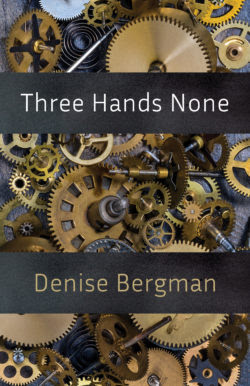“THREE
HANDS NONE” BY DENISE BERGMAN ( Black Lawrence Press)
Review
by Lee Varon
Denise
Bergman’s new book of poetry “Three Hands None” is a stunning
collection. The incident at the heart of the book is the assault of
the narrator by a stranger who breaks into her apartment. She
describes: “a twenty-year old woman alone in a tiny speck of bed/
deep inside sleep wakes up to a man with a knife at her throat.”
The
“three hands” in the title refers to the confusion and
disorientation the narrator feels as she attempts to recount her
horrific ordeal: “his three hands one on my mouth one with his
knife one/ holding the flashlight so close my eyes were on fire.
She
feels as if her attacker has three hands to her “none” since she
feels paralyzed in the moment of the attack— “this is what
powerless is.”
The
ten poems of the book are divided by long dashes enclosed in brackets
which give the reader a pause between each of the connected poems.
The often long lines without capitalization create a strong forward
momentum—I couldn’t put the book down.
The
story moves from the night the narrator is assaulted to her attempt
to recognize her assailant from the many mug shots she is shown by
the authorities—“photos of men was it this one that I tell them
that I hadn’t seen his face.” In the aftermath of the assault the
narrator is haunted by the feeling that threat is pervasive: “he
knows who I am/ each man I pass on my way to work/ knows who I am.”
He could be anywhere with his “surveillant camera” watching her,
ready to strike again. And apart from the daily way in which the
attack intrudes in every aspect of her life is the overarching
question so many survivors ask: “why me/who was I to him…”
Like
all survivors, the narrator’s being is shaken to its very core. The
attack has stripped her of her sense of self and safety: “he he he
gleaned me. what’s left are leafless stalks too thin to/ catch a
wind.”
Bergman
keenly depicts the disconnection and confusion which disrupts
everything in the narrator’s world: “she sleeps I sleep for weeks
a waking sleep though I can’t sleep/ can’t fall or stay asleep.”
Yet
there is still a kernel of herself that endures and pulls her through
the nightmare she is experiencing. It is midway through the book
that: “on hands and knees I retrieve the kernel lock it in my
fist.” There is a glimmer of reawakening and yet the narrator keeps
circling back to the assault even as she moves forward.
It
will take decades in which “speech was a pageless lexicon” before
she is able to write about her experience. Some people don’t
understand and wonder why she chooses to write about her ordeal after
so many decades. Her answer to them rings out with conviction and
clarity: “I say to sleep” and then, “to find the me back then.”
In
this volume of striking poems the narrator finds “the me” that
was stripped from her as a young woman and we as her readers are in
awe of her courage and gratified by her incremental triumphs in
regaining her selfhood.
In
the final section of the book, the narrator broadens her view beyond
her own experience to encompass the plight of all survivors of
violence—both women and men. She connects with other survivors and
encourages the reader to: “go to her though she doesn’t ask beg
or hint” and also, “bring her a siren bring her a bell bullhorn
megaphone/ microphone but know she will choose to whisper.”
In
“Three Hands None” Bergman goes beyond a whisper to a
full-throated, powerful, beautifully crafted work of art that will
reverberate long after you have finished her book.




































